
Stress relief a touch screen away
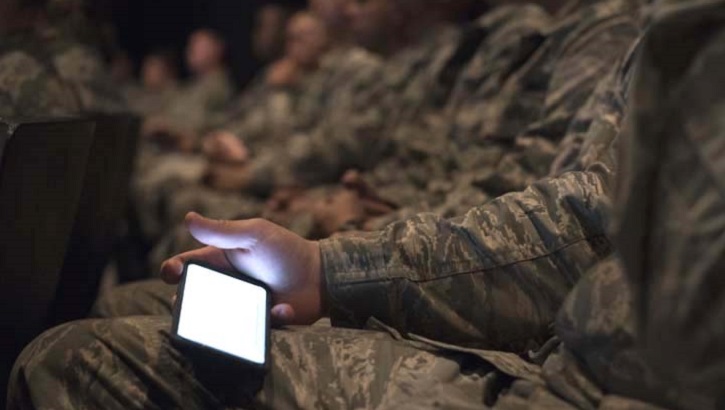
Dr. Tim Hoyt, chief of the DHA Connected Health Branch, described Breathe2Relax and the Virtual Hope Box as coping tools in the pockets of deployed service members. (U.S. Air Force photo by Senior Airman Ryan Lackey)
Stress can come from many sources for deployed service members – intense focus on the mission, exhaustion caused by continuous exertion and too little sleep, physical pain, depression, or relationship issues. Any or all stressors can impact a service member’s mental health. What if every time the anxiety level began to rise, there were handy tools within reach? Those tools exist in the form of apps for smartphones and tablets.
Breathe2Relax is a portable stress management tool for use either on your own or as part of a plan directed by a provider. Breathe2Relax provides detailed information on the effects of stress on the body and instructions and practice exercises to help users learn the stress management skill called diaphragmatic breathing.
“The challenge is to tell service members, ‘Hey, there’s time in your day to take a knee and focus on your own care, or on your coping strategies when things get rough,’” said Dr. Tim Hoyt, chief of the Defense Health Agency’s Connected Health Branch.
Hoyt first saw troops using smartphone apps that delivered coping strategies while downrange serving as an Army psychologist in Afghanistan. Deployed soldiers may not have had easy access to regular behavioral health sessions, but they had smartphones with them. “By getting coping tools into their pockets in the form of mobile apps, they were able to leverage that time between sessions and get reminders of the coping strategies we had worked on,” he said. “These are tools you can use anytime, anywhere to promote psychological resilience and cope with stressors.”
“I was sold on the fact that this has direct applicability to the warfighter,” said Hoyt, calling Breath2Relax and the Virtual Hope Box two “flagship apps” developed jointly by the Defense Health Agency’s Connected Health Branch and Web and Mobile Technology Program Office.
The Breath2Relax app has been downloaded more than two million times, with about 25,000 new downloads per month, according toCapt. Amy Park, a U.S. Public Health Service officer who leads the Mobile Health Clinical Integration Team in the Connected Health Branch. “These are robust numbers showing how many people we’re able to reach. As a provider, there’s no way I’m going to reach 25,000 people a month to teach the diaphragmatic breathing skill set. But through the app, we can.”
Park said Breathe2Relax was one of her favorite apps because it’s simple. “Sometimes simple gets the job done best,” she said. “Built-in feedback in the app helps patients self-adjust their tempo and rate of breathing so they can build their skills, learn, and practice what they learned on their own without having to rely on the provider.”
The Virtual Hope Box, or VHB, contains tools to help patients with coping, relaxation, distraction, and positive thinking. Patients and providers can work together to personalize the VHB with a variety of content – family photos, videos and recorded messages from loved ones, inspirational quotes, soothing music, reminders of past successes, or affirmations of self-worth.
The VHB has been downloaded more than 570,000 times, according to Park. “Really the power of the mobile app is it allows people to tap into resources at their fingertips and helps our service members and beneficiaries get to these evidence-based tools at all times, 24/7,” she said.
Clinical studies (Ethical and Legal Considerations; Smartphone Apps for Psychological Health; Cultural Considerations in Using Mobile Health) have confirmed the effectiveness of behavioral apps like Breathe2Relax and the VHB. In addition to the download rate, user feedback supports the effectiveness of the apps. One user of Breathe2Relax said, “I have an anxiety disorder and this helps me many times throughout the day take a step back and focus on breathing.” Another user said, “I had counselors in the past say I needed to breathe deeply and relax. I thought I already did and that I was a calm person. This app has shown me how to truly relax through breathing.”
Park sees technology’s potential in many other areas, such as for the management of chronic diseases, pre- and post-surgical care, wellness, and prevention. “DHA is at the forefront of integrating technology into clinical care, which is important because service members and their families face unique situational and mission-based stressors,” she said. “By having the option of these apps, they’re empowered to learn the skills needed even in the most austere deployment environment.”
Both Breathe2Relax and the Virtual Hope Box can be downloaded for free on Android and iOS devices.
Mental Health Care in the MHS
Congressional Testimony
5/24/2019
HR 5515, HASC Report for FY 2019, 115-676, Pg. 132-133
Dan Pelton: Embedded Behavioral Health Provider
Video
5/15/2019

Clinical Psychologist Dan Pelton deployed as an embedded behavioral health provider during Operation Enduring Freedom
Breaking the pain cycle
Article
4/9/2019
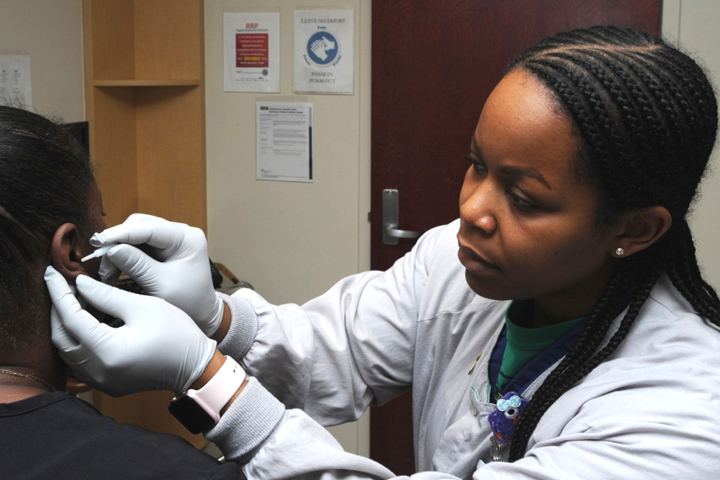
Live in agony or risk addiction? MHS pain management initiatives offer options
Study's focus: Mending hearts broken by deaths of military loved ones
Article
2/19/2019
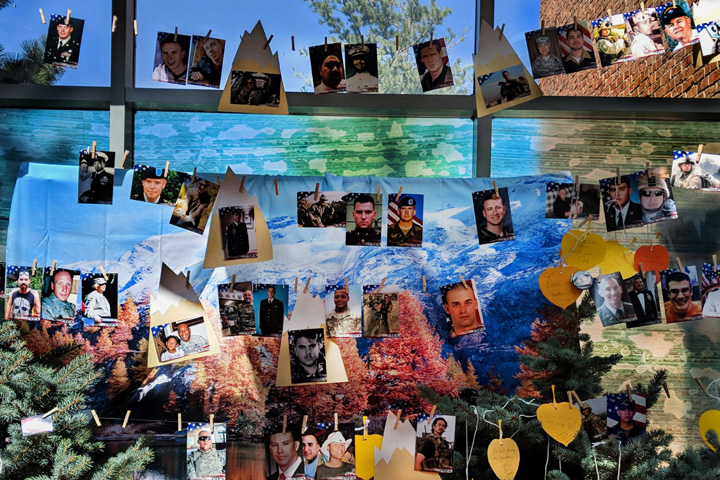
Military tests virtual programs for adapting to grief
It's complicated: Our relationship with social media
Article
2/13/2019
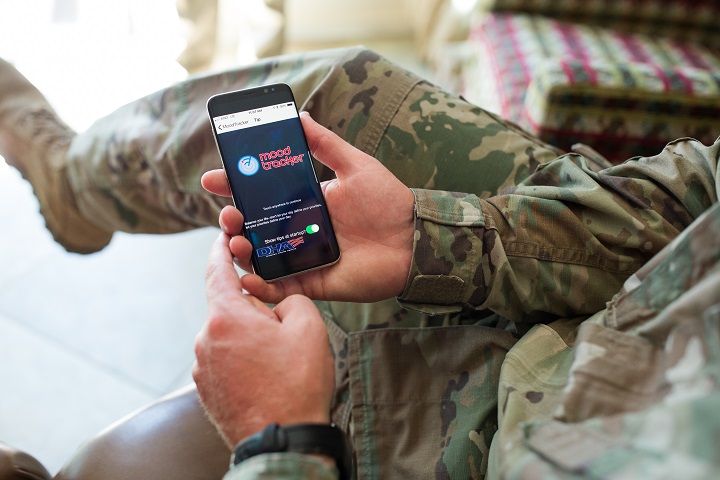
Social media can help connect and reconnect people; however, it may increase feelings of isolation or remind people of what they don’t have
Technology Solutions for Psychological Health
Congressional Testimony
2/1/2019
HR 3219, HAC Report FY 2018, 115-219, Pg. 287-288
Traumatic Brain Injury/Psychological Health
Congressional Testimony
1/25/2019
S. 3000, SAC Report for FY 2017, 114-263, Pg. 193
Mental Health Assessments for Members of the Armed Forces
Congressional Testimony
1/11/2019
HR 3979, NDAA Report for FY 2015, Sec. 701
Recognizing the holiday blues
Article
12/19/2018
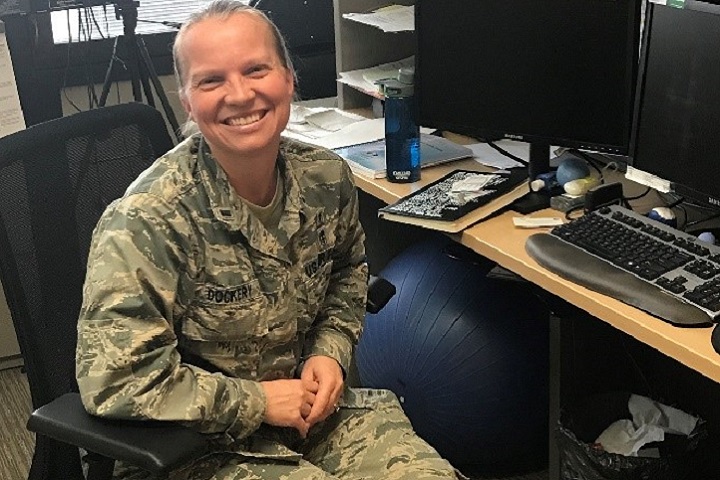
There are some individuals who are normally happy and content who can also experience holiday blues
A pain in the brain may be a migraine
Article
11/15/2018

Women affected three times more frequently than men
DHA IPM 18-019: Guidance for Service Implementation of Separation Mental Health Assessments
Policy
This Defense Health Agency-Interim Procedures Memorandum (DHA-IPM), based on the authority of References (a) through (c), and in accordance with the guidance of References (d) through (g): • Assigns responsibilities and provides instructions for implementing Reference (d), which requires an MHA for Service members prior to separation in accordance with References (e) through (g). • Is effective immediately; it will be incorporated into DHA-Procedural Instruction xxxx.xx, “Separation History and Physical Examination.” This DHA-IPM will expire effective 12 months from the date of issue.
- Identification #: 18-019
- Date: 11/8/2018
- Type: DHA Interim Procedures Memorandum
- Topics: Mental Health Care | Assessments
Women and depression
Article
10/30/2018
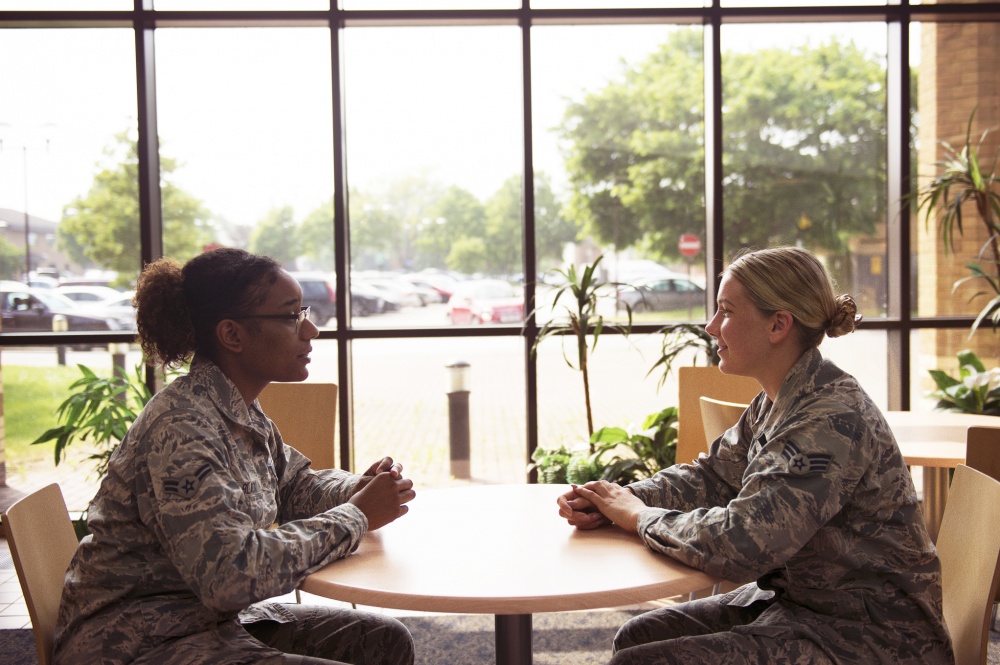
1 in every 8 women develops clinical depression during her lifetime
Pilot Program on Investigational Treatment of Members of the Armed Forces for TBI and PTSD
Congressional Testimony
10/9/2018
HR 3304, NDAA for FY 2014, Sec. 704
What to Expect at Your First Appointment
Video
9/20/2018

You’ve reached out for help, you’ve found the right provider, now Kristin Gwin from Walter Reed National Military Medical Center shares what to expect at your first appointment.
Kristin Gwin, Walter Reed Social Worker Talks About Getting Help
Video
9/12/2018

Kristin Gwin, a Social Worker at Walter Reed National Military Medical Center understands that getting help can be an intimidating process. She offers advice on how to get started by letting a professional know you want help.


































No hay comentarios:
Publicar un comentario